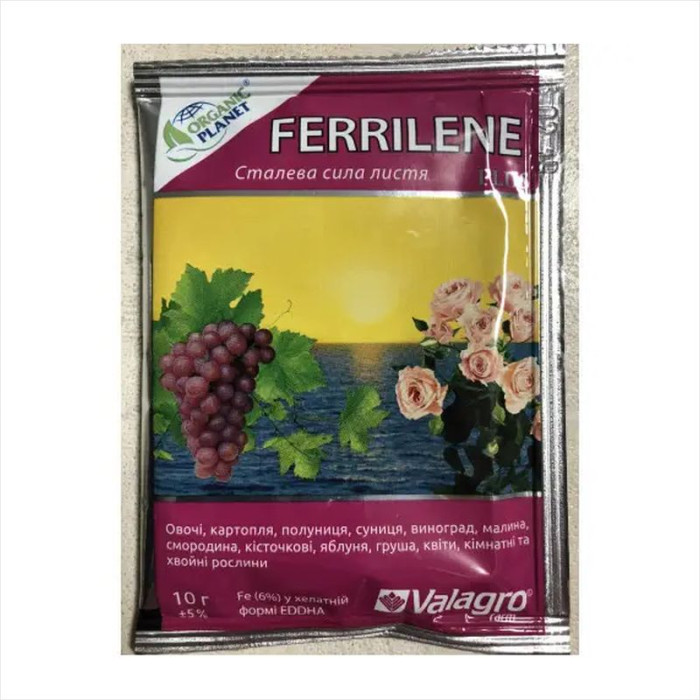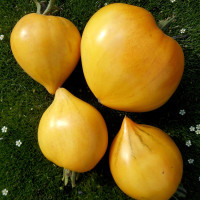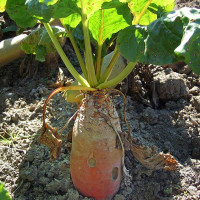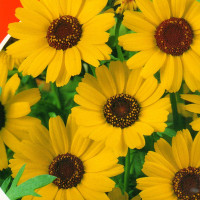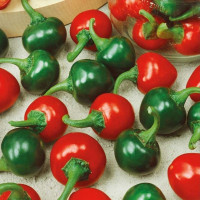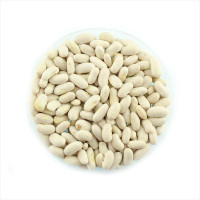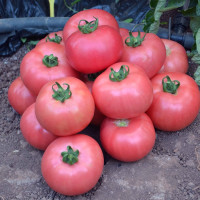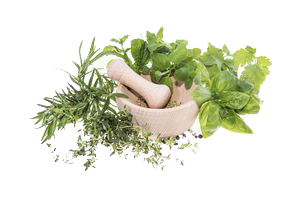Iron chelate «Ferrilene+» (Ferrilene Plus) - iron chelate - is a special, highly effective chelated form of iron for the treatment and prevention of chlorosis caused by iron deficiency. Ferrylene is produced using a technology that allows a high percentage of iron (4.8%) to be bound into the most stable form.
Iron has a special function - its indispensable participation in the biosynthesis of chlorophyll. Therefore, any reason that limits the availability of iron for plants leads to severe diseases, in particular chlorosis.
When photosynthesis and respiration are disrupted and weakened due to insufficient formation of organic substances from which the plant body is built, and a deficiency of organic reserves, a general metabolic disorder occurs. Therefore, with an acute iron deficiency, plant death inevitably occurs.
The use of Fe-EDTA chelate when watering at the roots is ineffective, because When using low-volume technologies in the root zone, the pH often rises above 6.5. In addition, soils in Ukraine have a pH reaction that is usually higher than this indicator. This chelate can be used for foliar feeding of plants (you must first acidify the water in which the chelate will be diluted).
Fe-DTPA, with a stability range of pH 1.5 to 7.5, has the optimal activity range for low-volume crops. Iron chelate DP 11 is used on iron-deficient soils with a pH value from 1.5 to 7.5.
Compound:
- Iron soluble in water - 6%
- Iron chelate EDDHA - 1%
- Iron chelate EDDHSA - 3%
- Manganese (Mn) chelate with EDTA - 1%
- Iron chelate EDDHA and EDDHSA is stable in the pH range from 4 to 10
- The pH values of manganese chelates with EDTA are stable with a range from 3 to 12.5
Fertigation (application with drip irrigation in open ground):
- Pomaceae: 30-100 g/plant
- Table grapes, citrus fruits, stone fruits, kiwi, tomatoes: 30-100 g/plant;
- Strawberry: 20-50 g/plant;
- Flower crops: 20-30 g/area;
- Vegetables and industrial crops: 50-100 g/area;
- Potted crops: 1.0 g/plant;
- Ornamental crops: 30-50 g/area
Do not mix with preparations based on zinc and copper (with the exception of chelates of these elements). Chelates are light sensitive. To reduce the risk of leaf scorch, do not apply foliar fertilizing on hot, sunny days.

No questions about this product, be the first and ask your question.


